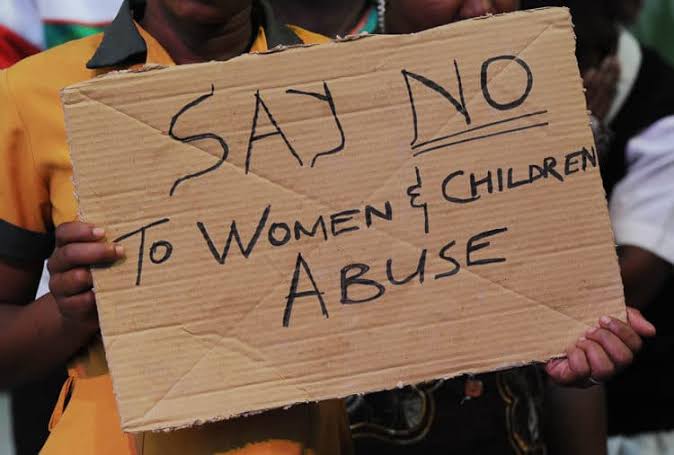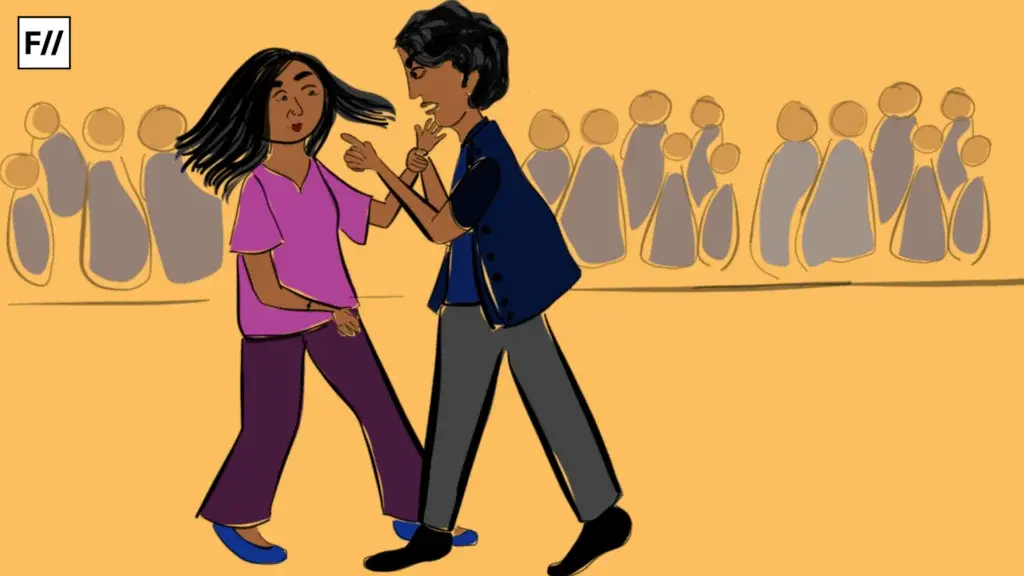Posted by Varsha Pillai
Every woman in India, in the know of the Hyderabad tragedy involving the rape and murder of the veterinarian doctor is angry, helpless as well. But mostly she is angry. Each of one of them have relived all those moments of checking in the rear view mirror if someone is following her, of avoiding those dark alleys if she is alone, of feigning a call to someone to create a sense of false security during a cab ride back home at night or when she moved around in a bus with a safety pin in her hand (that was me, years ago!).
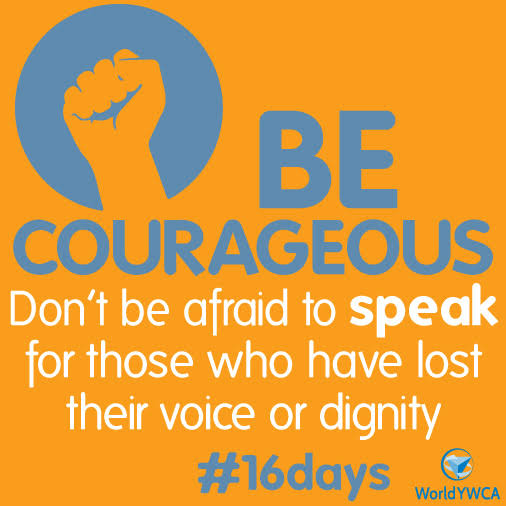
I think that therefore, there can be no better time than the present, for each one of us to be involved in the 16 Days Of Activism against Gender-Based Violence. In the aftermath of the Hyderabad tragedy, each one of us needs to understand the importance of such campaigns and why we need to participate and actively engage with it. This campaign is not just for the NGOs, not just for activists or international organizations, it is for each one of us, to engage with and spread the word. And call out the violence, loud and clear.
If you are regular member of the Twitterati, then you would have noticed an interesting Twitter trend doing the rounds called 16 Days Of Activism against Gender-Based Violence. And if you are one of those who are racking their brains to understand the significance behind these days, here is a brief 101 session on it.
An international campaign, the 16 Days Of Activism against Gender-Based Violence originated in 1991, by the first Women’s Global Leadership Institute in 1991, and runs from November 25 to 10th December (Human Rights Day). 25th November is also the International Day for the Elimination of Violence against Women.
An international campaign, the 16 Days Of Activism against Gender-Based Violence originated in 1991, by the first Women’s Global Leadership Institute, and runs from November 25 to 10th December (Human Rights Day). 25th November is also the International Day for the Elimination of Violence against Women. This campaign calls for individuals and organisations to call for the prevention and elimination of violence against women and girls. This campaign finds its origins with the first Women’s Global Leadership Institiute, around 28 years ago, and since then, this has been coordinated by the Center for Women’s Global Leadership.
Also read: The #GBVinMedia Campaign: Media Reportage Of Gender-Based Violence
As per the UNHCR, “Sexual and Gender-Based Violence (SGBV) refers to any act that is perpetrated against a person’s will and is based on gender norms and unequal power relationships”. Globally, 1 in 3 women are/will be victims to either physical or sexual based violence in their lifetime—a data point that clearly pinpoints to the staggering pervasiveness of violence against women that cuts across all sections of class, caste, religion, ethnicity, disability and regions.
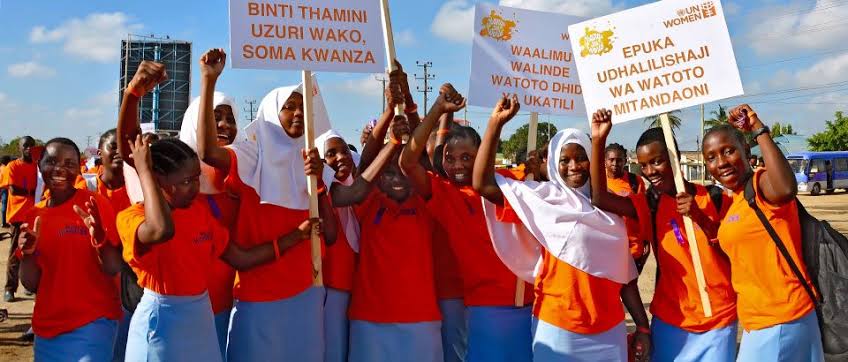
India does not fare that well as far as violence against women is concerned. In fact, India has the dubious distinction of being a country—not for women. A 2018 Thomson Reuters Foundation report said that, India was the world’s most dangerous country for women, due to the high risk of sexual violence! India has seen it all—from victim-blaming, objectification of women’s bodies, trivialization of rape, rampant use of misogynistic language and the complete normalization of the “rape culture”. More reason for why we need to actively support all such campaigns that call for greater solidarity in ensuring zero tolerance to Gender-Based Violence.
India does not fare that well as far as violence against women is concerned. In fact, India has the dubious distinction of being a country—not for women. A 2018 Thomson Reuters Foundation report said that, India was the world’s most dangerous country for women, due to the high risk of sexual violence!
Orange is the colour symbolizing the 16 Days Of Activism against Gender-Based Violence, and was chosen owing to the colour’s association to hope, strength and perseverance. Used as a foundation to strengthen and build solidarity amongst those who work against Gender-Based Violence along with working for the victims of GBV.
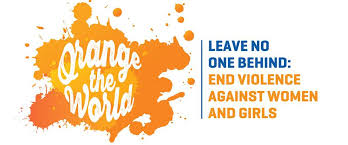
In case you are wondering, how would you be able to participate for the campaign described above, here are some pointers on how each one of us can be a part of this global movement against Gender-Based Violence and extend a hand of solidarity and power for victims of GBV:
- Engage in all discussions that call out discrimination, with our sisters, brothers and our children.
- Call out discrimination and harassment and report against such behaviour, whether it is in your workplace or home or in the neighbourhood. It is the silence around such discrimination that encourages and escalates such behaviour.
- Do not ignore lewd comments, catcalls. Call out all such behaviour. The phenomenon of “ignorance is bliss” can no longer ensure safety, it only normalizes such violent acts.
- Demand for better accountability of all systems that are supposed to protect us and ensure our safety.
Also read: 16 Days, 16th December, 2 Years Later: What Next?
These little steps and micro initiatives can result into better sensitisation across people from all groups and would play an important part in creating a more inclusive and gender-just world around us. The 16 Days Of Activism is an endeavour for Feminist solidarity and sisterhood.
Varsha Pillai has over 16 years of experience in the communication space, a bulk of which was spent as a TV news journalist at reputed news organizations like CNN-IBN and ANI-Reuters. A research addict, she has been an NFAI (National Film Archives of India) research fellow in 2009 and a NUFFIC Fellow (Netherlands Fellowship) in 2017.Last year she was one of the 10 young leaders selected globally to attend the Winterschool for Thinktankers in Geneva in Jan-Feb 2019 under the On Think Tanks and Think Tank Initiative Fellowship. You can find her on Twitter, Instagram, Facebook and LinkedIn.
Featured Image Source: The South African
About the author(s)
Dr Varsha Pillai has close to 2 decades of experience in the media and communications domains in the for-profit and development sectors. A specialist in media advocacy and public policy advocacy initiatives, Dr Pillai was a NFAI (National Film Archives of India) research fellow in 2009, followed by a NUFFIC Fellow in 2017 and in 2019 she was selected among 10 young leaders globally for the Winterschool for Thinktankers in Geneva as part of the Think Tank Initiative Fellowship. More recently in August 2022, Dr Pillai was selected as a Changemaker by Change.Org India 2022. She has completed her PhD on Gender Advocacy in Digital Media in India from Symbiosis International University and presently heads the narrative building and communications at Dream a Dream, a not for profit based India.
